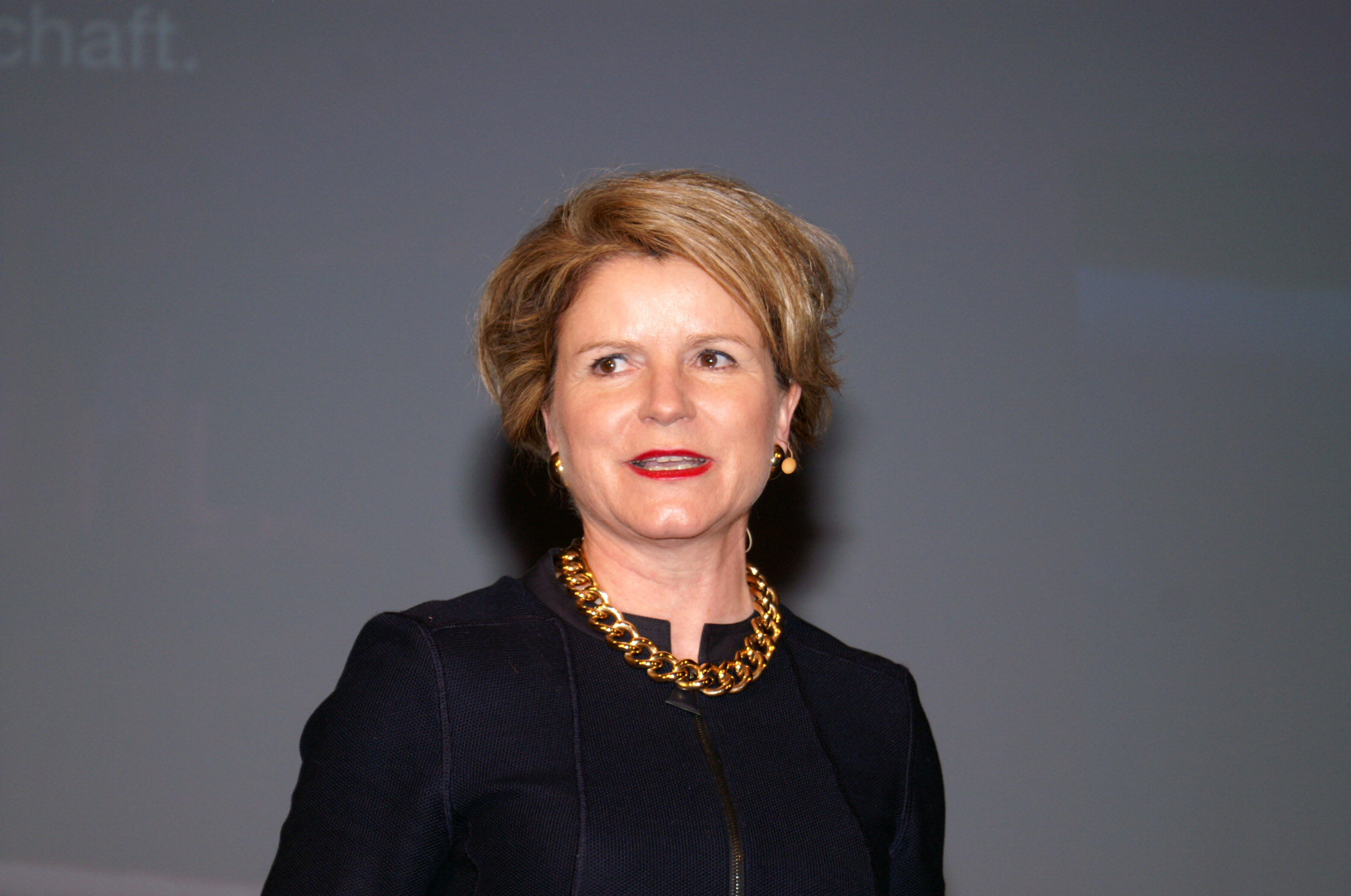“SMEs need to be more innovative”

The new director of the State Secretariat for Economic Affairs says priority should be given to improving business conditions abroad.
Marie-Gabrielle Ineichen-Fleisch, who started in the job this month and is the first woman to hold the post, tells swissinfo.ch that this included creating better access to markets and more free trade agreements.
Among those expected to benefit are small and medium-sized enterprises (SMEs), which form the backbone of Switzerland’s export economy.
They must, however, keep up with the times by staying innovative and diversifying, she says.
swissinfo.ch: What are your priorities?
Marie-Gabrielle Ineichen-Fleisch: Seco has a wide range of tasks. After the economic crisis, we should give priority to improving the business environment abroad. That includes creating better access to markets and expanding the network of free trade agreements.
The relationship with Europe will also be a priority. Located in the middle of Europe, we must further develop our relationship with our neighbours and with the EU.
swissinfo.ch: That sounds pretty businesslike. When it comes to foreign trade, don’t emotions come to the fore?
M.-G. I.-F.: Yes indeed! Without emotion, SMEs wouldn’t have managed to develop a feel for foreign markets and become the backbone of the export industry.
During negotiations, I’ve always represented Switzerland with passion. It might be hard to imagine that you can negotiate passionately about customs duties. But whether it’s a change involving sliced tomatoes or unroasted peanuts, lower tariffs could directly affect the competitiveness of Swiss companies. So the matter is anything but dull.
swissinfo.ch: The recent financial crisis was also laden with emotion and its impact had to be reduced. What’s next?
M.-G. I.-F.: The cabinet and parliament adopted various economic stabilisation measures in 2008 and 2009. They were implemented starting in 2009 and will run through the end of 2011. These include export promotion measures which have been implemented by Seco. Thanks to these – among other things – the Swiss economy was able to achieve a substantial recovery by mid 2010. Federal experts are predicting Gross Domestic Product growth of around 2.1 per cent for 2011, which I consider good.
A new challenge for us will be the change in the global economy. Since the financial and economic crisis, there’s been a shift in the world’s economic-political heavyweights.
The emerging markets have recovered better than the industrialised countries. They have also become much more confident thanks to these developments. Accordingly, they now want a say in the World Trade Organization, the International Monetary Fund and the G20 – as equal partners.
swissinfo.ch: How do you see the developments in the European Union environment?
M.-G. I.-F.: There are some problems with the euro-zone. Portugal has just called for support. The strong Swiss franc has been problematic for part of the Swiss export industry, but in principle, a strong currency should be interpreted as a sign of a strong economy. So we are the victims of our own success.
swissinfo.ch: What else does Switzerland have to tackle?
M.-G. I.-F.: The year 2011 is an important one because parliament will decide on the financing of export promotion and investment promotion. A corresponding dispatch will be discussed in the summer and fall sessions. We’ve seen that demand for Seco’s services has increased in recent years.
It’s up to the SMEs to be even more special and innovative than their competition and to further diversify their markets. We at Seco are targeting some regions in particular for future free trade agreements – especially Asia.
swissinfo.ch: That would be the bilateral part of your policy. What about the multilateral part in the WTO?
M.-G. I.-F.: The major trading countries are still divided regarding the themes they actually want to tackle. After 15 years of experience negotiating, I have to say that unfortunately, the Doha rounds don’t look too promising. But I’m an irrational, eternal optimist and I still hope for a breakthrough in any form. The WTO rounds are indeed very important – especially for developing countries.
With the uncertainties in the multilateral area, our policy of bilateral free trade agreements take on greater weight. We already have 24 such agreements with 33 countries outside the EU. Last January, we decided to negotiate with China at the WEF meeting in Davos. A Chinese delegation has just been in Bern.
Negotiations are also underway with India, Indonesia and the customs union of Russia, Kazakhstan and Belarus. We have also been in contact with Brazil and other countries in Asia and Latin America.
State Secretary Ineichen-Fleisch took over as director of Seco (State Secretariat for Economic Affairs) on April 1 after the departure of Jean-Daniel Gerber.
With an Italian and French-speaking background, she completed her legal studies in the capital Bern in 1987, worked afterwards at McKinsey and earned her MBA at Insead in Fontainebleau. She joined the Federal Office for Foreign Trade, Seco’s predecessor, in 1990.
While accompanying the then State Secretary Franz Blankart on international talks early in her career, she discovered she enjoyed the experience and decided to stay in the field.
In 2007 Ineichen-Fleisch was appointed ambassador and delegate for the government for trade talks. She was Switzerland’s chief negotiator at the WTO, a member of Seco’s management and head of the World Trade Division in the Foreign Economic Affairs Directorate at Seco.
Osec, Business Network Switzerland, informs, advises and supports firms from Switzerland and Liechtenstein in their international business ventures.
As well as advancing exports, Osec also promotes Switzerland as a location and undertakes import and investment promotion activities for the benefit of selected developing and transitional countries.
(Translated from German by Susan Vogel-Misicka)

In compliance with the JTI standards
More: SWI swissinfo.ch certified by the Journalism Trust Initiative













You can find an overview of ongoing debates with our journalists here . Please join us!
If you want to start a conversation about a topic raised in this article or want to report factual errors, email us at english@swissinfo.ch.